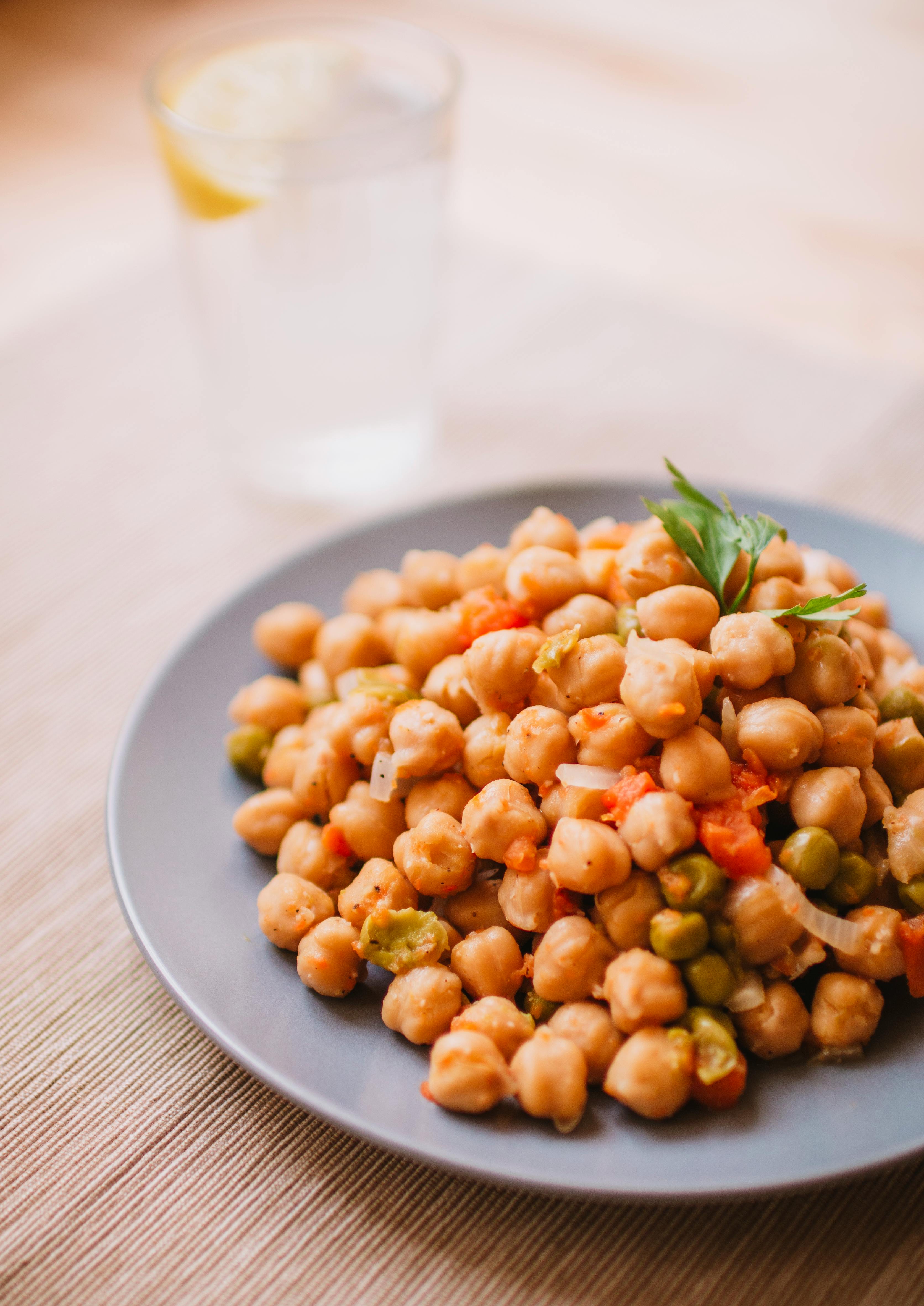Essential Guide to Carbs in Hummus: Discover Nutritional Insights for 2025
Hummus is a beloved dip and spread that many enjoy for its creamy texture and rich, nutty flavor. However, with varying nutritional profiles depending on the ingredients and preparation methods, understanding the carbohydrate content of hummus is essential, especially for health-conscious individuals and those following specific dietary protocols like keto or the Mediterranean diet. This guide will delve into the carbs in hummus, including its nutritional value and health benefits, serving suggestions, and easy homemade recipes.
By gaining insights into the carbs per serving of hummus and comparing homemade vs. store-bought options, you can make informed choices and fully enjoy this nutritious food. Whether you're looking for healthy hummus recipes or alternatives to traditional hummus, this guide will provide all the information you need for your dietary journey in 2025 and beyond.
Key takeaways from this guide include understanding the nutritional profile of hummus, exploring low carb hummus options, and uncovering innovative ways to incorporate hummus into your snacks and meals.
Understanding the Nutritional Profile of Hummus
The nutritional value of hummus is directly related to its primary ingredients, predominantly chickpeas. Hummus ingredients usually comprise tahini, olive oil, lemon juice, garlic, and salt, which contribute to its health benefits. Chickpeas, the star ingredient of hummus, are an excellent source of dietary fiber, protein, and essential vitamins and minerals.
Carbs in Hummus: A Closer Look
When discussing hummus nutrition, a crucial aspect to consider is its carb content. On average, each serving of hummus (approximately 2 tablespoons) contains about 4 to 7 grams of carbohydrates. This may vary depending on whether it is homemade or store-bought. While hummus offers a modest carb count, the quality of these carbohydrates matters as they are derived primarily from chickpeas, which are also rich in fiber—important for maintaining a healthy digestive system.
Comparing Homemade and Store-Bought Hummus
Homemade hummus typically offers a fresher taste and can be tailored to suit individual dietary needs, including variations in carb content. For example, adjustments can be made to include less tahini or olive oil to reduce total fat and carbs. Store-bought options, while convenient, can contain preservatives and may have added sugars, impacting the overall nutritional profile. It's wise to read labels to compare the calorie breakdown of hummus from different brands to find the best option that aligns with your dietary goals.
Protein and Fiber Content
A standout feature of hummus is its protein content. With about 2 grams of protein per serving, hummus offers a plant-based alternative for those looking to boost their protein intake. Additionally, the fiber in hummus contributes to fullness and can aid in weight loss efforts, making it a nutritious choice among high carb dips. Incorporating hummus into your diet can support healthy snacking, particularly when paired with vegetables or whole-grain pitas, enhancing both texture and flavor without excessive calories.
Hummus Health Benefits: A Nutrient-Rich Snack
Building on the nutritional insights, it’s essential to understand the various health benefits of regular hummus consumption. Not only does it serve as a low-calorie dip, but it also provides a myriad of benefits that align with healthy eating practices.
Promoting Heart Health
The combination of healthy fats from olive oil and nutrient-rich chickpeas makes hummus an excellent choice for heart health. Ingredients like tahini contain unsaturated fats, which can help lower cholesterol levels and support cardiovascular health. Regularly incorporating hummus into meals can therefore contribute to improved heart function and overall well-being.
Supporting Digestive Health
Hummus is a fiber-rich snack that promotes digestive health. The dietary fiber content supports regular bowel movements and can help prevent constipation. Additionally, fiber has been linked to reduced incidences of various gastrointestinal diseases. Consuming high fiber foods, like hummus, is a practical dietary strategy for maintaining gut health.
Weight Management and Satisfaction
For individuals focusing on weight loss, hummus can be an ideal component of a balanced Diet. The combination of protein and fiber helps increase feelings of fullness, reducing the likelihood of overeating during meals. Pairing hummus with fiber-rich vegetables enhances this effect and provides low-calorie snacking options.
Innovative Ways to Use Hummus
With a greater understanding of hummus nutrition and health benefits, you might wonder how to incorporate this dip into your diet beyond traditional applications. This section will provide creative ideas for using hummus in meals and snacks.
Dips and Spreads
Hummus makes an excellent dip for veggies and a flavorful spread for sandwiches. Transform regular meals by adding hummus to wraps or using them as a base for veggie burgers, enhancing nutritional value and flavor. You can also mix hummus with Greek yogurt for a protein-packed dipping sauce.
Creative Hummus Recipes
Explore various healthy hummus recipes by experimenting with flavors such as roasted garlic, spicy paprika, or lemon herb. These variations can enhance nutrient density while providing exciting flavor profiles to suit your palate. Consider trying unique chickpea-based recipes that incorporate other legumes or adding ingredients like spinach or roasted red peppers to create nutrient diversity in your hummus.
Meal Prep with Hummus
Hummus is ideal for meal prep, as it can be made in larger batches and stored for later use. Portion out servings for on-the-go snacks or as part of balanced meal plans. This not only saves time but allows you to control the ingredients, ensuring that you're consuming healthy hummus without unwanted additives.
Low Carb Hummus Alternatives and Recipes
For those particularly focused on reducing carbohydrate intake, exploring low carb hummus alternatives or versions can be beneficial. This section dives into how to create lower-carb dips using various ingredients.
Vegetable-Based Hummus
Rather than solely relying on chickpeas, consider using other vegetables like cauliflower or zucchini as the base for your hummus. These alternatives maintain the creamy texture while significantly lowering the carb count. Blending roasted cauliflower with tahini and lemon provides a gourmet flavor without the added carbs typically found in traditional hummus.
Using Nuts for a Creamy Alternative
You can also explore using nuts like cashews or almonds to create a creamy dip. Simply blend the nuts with spices, lemon juice, and olive oil for a flavor-packed snack that offers low carb benefits while still providing protein and healthy fats.
Best Ways to Enjoy Hummus
To wrap up our exploration of hummus, let's focus on the best ways to enjoy this nutritious dip while maximizing its benefits.
Pairing Suggestions
Hummus pairs excellently with various foods, including fresh vegetables, whole-grain crackers, and pita bread. Combining hummus with nutrient-dense options such as raw carrot sticks or cucumber slices creates a well-balanced snack that satisfies your hunger without drastically spiking your blood sugar levels.
Hummus in a Balanced Diet
Including hummus in your diet enhances your meals' overall carbohydrate diversity. Remember to consider portion control when consuming hummus, as it’s easy to overindulge, especially with high-calorie versions. By understanding the nutritional profile and making smart choices, hummus can fit seamlessly into a healthy lifestyle.
Q&A About Hummus Nutrition
How many carbs in hummus are typically found per serving?
Generally, there are about 4 to 7 grams of carbs in hummus per serving (2 tablespoons). This can vary based on the specific recipe or brand, which is essential to consider when planning your meals.
What makes hummus a healthier dip compared to others?
Hummus is primarily made from chickpeas, which are rich in fiber and protein, making it more filling compared to less nutritious dips like ranch or sour cream. It's lower in calories and healthier fats, making it a better choice for weight management.
Can hummus be part of a keto diet?
While most traditional hummus is higher in carbs, there are low carb hummus alternatives made with lower carb vegetables like cauliflower. These options can fit into a keto diet with moderation.
What are some creative uses for hummus besides a dip?
Hummus can be used as a sandwich spread, added to pasta dishes, or even blended into salad dressings for a creamy texture. Experimenting with hummus can enhance various dishes while providing nutritional benefits.
How can I make my hummus healthier?
To enhance the health benefits of your hummus, consider using fresh ingredients, limiting added oils, and opting for homemade recipes that allow better control over the nutritional content. Adding spices or herbs can also boost flavor without increasing calories.


